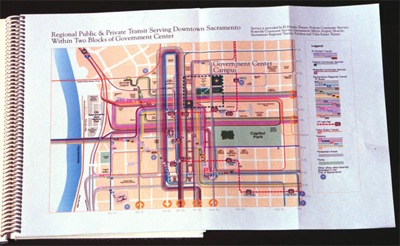I
invite your comments by email for now: whitneye001@hawaii.rr.com. We
will work to set up a blog that could perhaps unfold
in a space like this.
First, I would be very interested in any comments on
my paper. There are many perspectives from which to view
the issues that face environmentalists and the
citizens of Sacramento who want to live in healthy neighborhoods,
and it is important for all sides to know all the arguments and problems.
By understanding one another we can arrive at solutions everyone will work to
honor - such is my ideal, and what I worked for in Sacramento. Some may consider
this a hopelessly naive idea in todays harsh political clilmate, but I consider
it smart, and what reasonable people want to accomplish. I learned - that I have
much to learn, and I sincerely welcome comments, which I hope to eventually turn
into a book perhaps, with many
co-authors: all of you readers and commenters who were involved in the activities
described in the paper.
Protected
7-million-tire pile in California burned completely
after a lightning strike back in 1999.

Even
the best of intentions can come to no good end.
In Westley, California, near Modesto
many years an enterprising man had collected
the largest tire pile in the world. Tires were trucked
from all over California and stored in a huge
pile
that was protected from vandalism behind a high
guarded fence. The pile eventually came to number
more than
7 million tires at the time this picture was
taken by me. One unfortunate day in September,1999,
lightning
struck and the tires ignited. It took thirty
days to control the fire.
Electric
and hybrid vehicles are the future.
I was an "early adopter" and purchased this sweet Danish
"City El" electric vehicle when It became available.
It was perfect for Sacramento. It moved at 35 m.p.h and
handled mid-town travel for one passenger just fine.
I joined the Electric Vehicle club at SMUD that Ruth
MacDougal coordinated. The experience offered great insight
as to how the auto industry evades regulation. General
Motors developed their excellent EV1, they pre-empted
the field, and then dropped it like a hot potato.
Travel
to other lands brings important perspectives.
Travel is important for a mature view of the world. In
Sacramento in the 1990s we were promoting transit-oriented
development. For U.S. developers it was a new concept.
This is why world travel can be important. You can see
that transit villages exist in other parts of the world,
as shown here in this photograph taken in Holland. Also
remarkable was the lack of fences in agriculture areas,
which as you can see here extended right up to the high
rises. They do Western Civilization pretty well over
there!
My
travels to Paris and London helped get some state
buildings efficiently located in downtown Sacramento! The subway maps from those cities show the routes
in different colors. This inspired the map I created
when the state was planning to consolidate its office
buildings in the downtown Sacramento area in the
most environmentally friendly manner. I showed each
bus route into the downtown area in a different color.
Regional Transit administrators at the time did not
want to use my concept of multicolored routes into
downtown because they were worried that it would
seem that light rail was not being efficient. I had
to obtain special permission to work after hours
on my own time to create these maps.

Numbers matter when individual citizens
propose alternatives. For years my job at Regional
Transit had been to create
the bus schedule books and route maps for Regional
Transit. I was not employed as a planner.
RT Planning gave testimony
with vague generalizations. Using my schedule book
I counted the number of times busses and
light rail stopped
throughout each day within three blocks of each proposed
location for a state office site. The CalEPA building
shown in the photograph here was ranked 2nd in my list.
Also built was the building that ranked 3rd. My map
and graph were reproduced in many of the
proposals (which
I allowed for free) for buildings that were high on
my list.
The
items above are discussed in the downloadable PDF
"What
Can One Person Do?".

